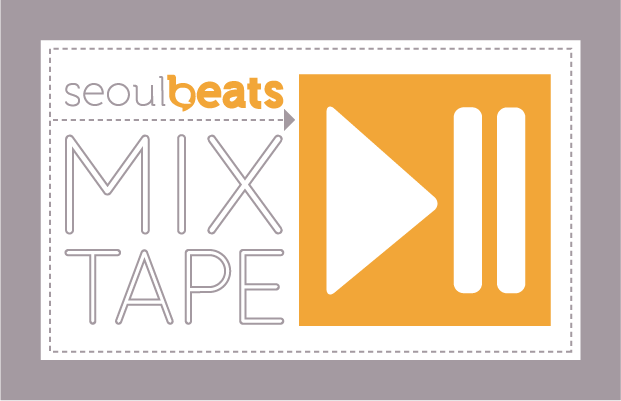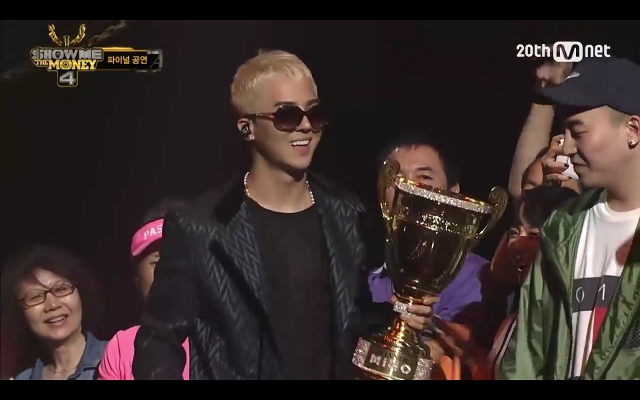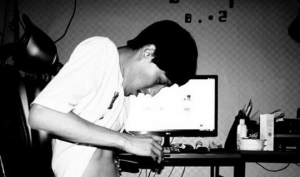 Note: This article includes brief discussions of sexual harassment and self-harm. Readers who may be distressed by such details are advised to proceed with caution.
Note: This article includes brief discussions of sexual harassment and self-harm. Readers who may be distressed by such details are advised to proceed with caution.
Qian: When the news broke that rapper KittiB was suing Black Nut for sexual harassment and defamation of character, I simply marveled over the fact that it took so long. I liked Black Nut, I liked his rapping style, and I’d be lying if I said I didn’t find some of his antics funny in an “I’m-going-to-hell-for-this” manner, but some part of me knew his irreverent tendencies were bound to catch up with him, especially in a conservative society like South Korea. I have no idea why he has this thing against KittiB of all people, but it started with a lyric from “Indigo Child”.
“To be Honest, I jerked off while looking at a photo of KittiB
Of course, before I saw her on Unpretty Rapstar”
And despite her public threats for him to stop mentioning her, Black Nut simply couldn’t help but poke the bear with a bigger stick on “Too Real”, rapping that “I wouldn’t screw KittiB even if she was given to me for free”. Combine that with some obscene gestures he made whilst performing these songs as well as calling her a “kimchi girl” on Instagram, and you have the makings of KittiB’s lawsuit. Unsurprisingly, Black Nut was handed a suspended sentence of six months in jail, as well as 160 hours of community service.
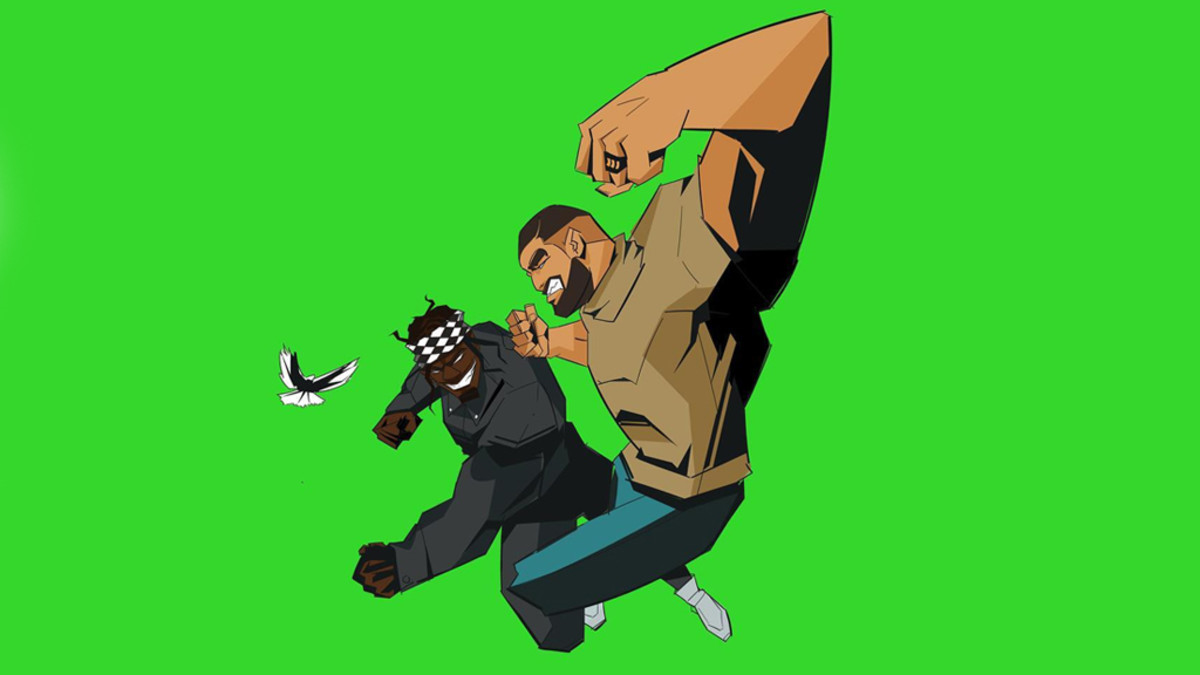
Rap music has always benefited from a certain refuge in audacity, from vivid pictures of a rapper’s hard-knock life, to tongue-twisting descriptions of the heights of bacchanalian luxury, to mind-bending metaphors of detailed violence and crime, and disses. The general idea was that if you had beef with someone, and as long as you were both rappers and “in the game”, and made sure to direct your personal ire towards each other on wax, it was acceptable. Anything beyond that would just add to the entertainment factor, like with the beef between Drake and Pusha-T in 2018, in which the latter came with a savagery that bordered on character assassination. Taking all of that in mind, I’d like to ask: am I an asshole for thinking KittiB should not have responded to Black Nut’s sexually provocative lyrics with a lawsuit? Yes, the lyrics were vile and inappropriate, and Black Nut doubled down on them even when KittiB had publicly told him to stop. Yes, it is perfectly within her right to do so. But personally, I’m on the fence whether a lawsuit was the appropriate response in response to his lyrics, especially as there were plenty of worse lyrics in hip-hop going unchecked.
What do you think, Cy?
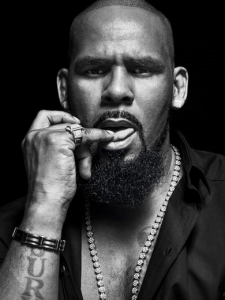 Cy: Firstly, the fact that there are “worse lyrics in hip-hop that go unchecked” is a flimsy argument against someone who actually does finally check another rapper for coming at them sideways. That’s like saying we shouldn’t come for R. Kelly because there are plenty of white men who are rapists and pedophiles who get away scot-free. Yes, it’s true the system is set up in a way to protect white men of power far easier than black men and women in lesser but oftentimes equal positions of power. However, that does not in any way negate the fact that R. Kelly is, in fact, a rapist and a pedophile and he should be punished for his actions regardless of the nature of the system. Simply because by and large the trend is for rappers to just clapback lyrically, it doesn’t eliminate the risk that someone will actually clapback in the real world.
Cy: Firstly, the fact that there are “worse lyrics in hip-hop that go unchecked” is a flimsy argument against someone who actually does finally check another rapper for coming at them sideways. That’s like saying we shouldn’t come for R. Kelly because there are plenty of white men who are rapists and pedophiles who get away scot-free. Yes, it’s true the system is set up in a way to protect white men of power far easier than black men and women in lesser but oftentimes equal positions of power. However, that does not in any way negate the fact that R. Kelly is, in fact, a rapist and a pedophile and he should be punished for his actions regardless of the nature of the system. Simply because by and large the trend is for rappers to just clapback lyrically, it doesn’t eliminate the risk that someone will actually clapback in the real world.
The difference, honestly, is that in most aspects of society, people are already pre-dispositioned to think a) women are weaker, but b) at the same time women should just take whatever treatment they’re given (especially if they’re in a perceived “male dominated” field). KittiB explained about past trauma in her life and asked that Black Nut keep her name out his mouth. He decided that this woman needed to be put in her place and ignored her. So she did what she felt she had to.
Many would and have said, “Well if she can’t handle it she shouldn’t be a rapper.” The fact remains, he decided to force more trauma on her because he felt he had a right to. So really the argument should be, “If he didn’t want real-life repercussions, he should’ve just sat there and ate his food.” Don’t get tough with people who aren’t trying to play your game.
Qian: I don’t disagree R. Kelly’s a scumbag, but I’d argue his documented crimes are much more serious in comparison to Black Nut, whom I believe is simply a moron and limited his unsavory antics to his times onstage. The charge KittiB brought against him — defamation of character — is already difficult to make an argument for, and harder in an artistic context. One can always say that he dramatized his lyrics for the sake of his art, which is probably another reason — beyond the existing culture against it — you don’t see these sort of suits in the west, despite all the mud-slinging. I mean, Kanye West made a potentially libelous claim that Nike treated their employees like slaves on the song “Facts”, and Nike didn’t dignify it with a response.
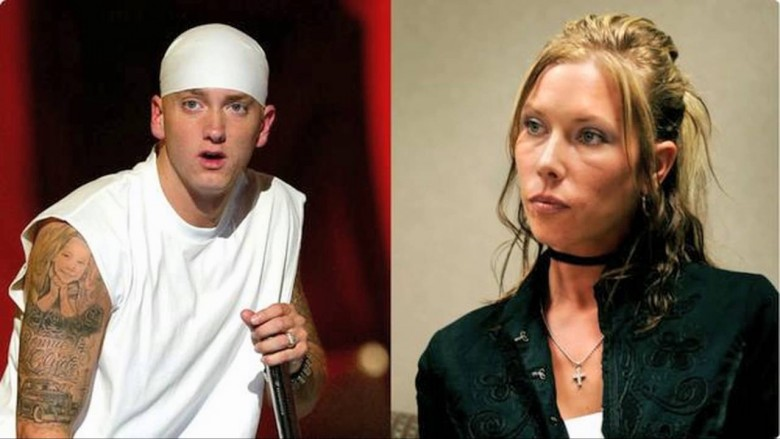
On the occasions you do see defamation lawsuits happen, though, nothing much really comes of it. In the height of his shit-stirring days, Eminem had written an entire song “Kim” dedicated to his wife, Kim Mathers, in which he enacts a violent fantasy of the climax of an argument the two of them had, ending with him slitting her throat. He went on to say that it was his way of showing her how much he cared, in a screwed up way, to even put her in one of his songs.
Kim went on to slit her wrists after seeing it performed in front of thousands, complete with Eminem doing obscene things to an effigy of his wife. Naturally, the entire thing culminated in a lawsuit, with Kim citing emotional distress and the trauma it caused, seeking damages for 10 million dollars and for Eminem to stop mentioning her in his songs. But in the words of lawyer Don Engle, emotional distress is hard to sue for.
“You have to meet a standard that is so far beyond the pale. I personally doubt anything you say in a rap lyric would meet that standard. Plus you have to get around the constitutional right of free speech.”
I’m actually with Kim in thinking if “Kim” doesn’t meet that standard, nothing will, but the trial culminated in nothing substantial: a divorce, outlines for child support, and two very unhappy people. Eminem continued rapping about their relationship on his songs, from “When I’m Gone” to “Love The Way You Lie”. Maybe Eminem had a heck of a great lawyer. Maybe it was the fact that abuse was hardly unilateral in their rocky relationship that sunk Kim’s case. But if a case with numerous parallels to Kitti B’s — from the vile lyrics to the onstage obscenities — didn’t fly in court, I can’t help but think Black Nut’s sentence of probation and community service is overkill for so little in comparison. You can say it’s a matter of differing cultures, of course, but my opinion remains: in light of past cases, Kitti B’s choice to sue seemed rather like the nuclear option, and Black Nut — vile as he is — deserved a lesser sentence.
 Cy: While all that remains true, that doesn’t negate the fact that KittiB was well within her rights to retaliate in whatever way she felt she should. Regardless of if the precedent is set that defamation cases are mostly “impossible” to prove (and harder to do so under the convenient excuse of “artistic expression”), it gets to a point that you realize you as a person aren’t going to stop someone from taking liberties with your personal life. Many rappers just decide to take the loss and pretend it didn’t happen (case in point, your initial reference to Drake just eating it). However, there are people who step outside the persona, the stage and wax, and decide I’m going to assert myself in the real world. Whether or not Black Nut deserved a lesser sentence is a different debate at this point. The question set forth is whether or not KittiB “should’ve” taken him to court.
Cy: While all that remains true, that doesn’t negate the fact that KittiB was well within her rights to retaliate in whatever way she felt she should. Regardless of if the precedent is set that defamation cases are mostly “impossible” to prove (and harder to do so under the convenient excuse of “artistic expression”), it gets to a point that you realize you as a person aren’t going to stop someone from taking liberties with your personal life. Many rappers just decide to take the loss and pretend it didn’t happen (case in point, your initial reference to Drake just eating it). However, there are people who step outside the persona, the stage and wax, and decide I’m going to assert myself in the real world. Whether or not Black Nut deserved a lesser sentence is a different debate at this point. The question set forth is whether or not KittiB “should’ve” taken him to court.
Qian: Or whether she should have kept it within “hip-hop” and release a diss track of her own, as these things usually pan out.
Cy: We can’t suppose her actions are right or wrong based on the results other people with possibly “better” cases had in the end. We also can’t compare the circumstances of a married couple going through a messy divorce to one rapper taking liberties with “his art” to traumatize someone he is not intimately connected to. More than anything else it proves just how faulty the system is. In the end, if the judge is racist, misogynistic, or just plain doesn’t like you, you’re doing time/paying a fine/whatever he deems is an appropriate repercussion for whatever you’re in front of him for.
Keeping it within “hip-hop” supposes that there’s only one way to handle beef. People have been shot in the streets for less than what Black Nut said. Do we consider that just a part of hip-hop? Is the only way to describe hip-hop to you (or anyone else of the mind that KittiB “pussied out”) is inherent violence and misogyny? Because that’s a rather narrow perspective of something steeped in culture and its own share of trauma.
What are we really trying to get at here? That KittiB isn’t “hip-hop” enough. Why? Because in the States it just wouldn’t happen that way (or at the very least the portrayal is that it wouldn’t happen that way)? That “real hip-hop” means that you just release diss track after diss track, never coming to an actual conclusion? That hip-hop means you let the public decide who ultimately came out on top in a lyrical beef? Tough shit. Sometimes things get real. Whether it’s a lawsuit or something more final, there’s always more than one way to ensure that somebody won’t pop off at the mouth unchecked.
Qian: Point. I’d go on and add that a lot of rap music is so casually misogynistic that it’s sort of surreal seeing how the genre’s overtaken rock to be the most popular genre in the states, despite the rise of PC culture. I wonder whether the muted response to the misogyny and violence is due to a delusional acceptance that they are integral to the genre, or whether it’s something akin to a shared suspension of disbelief for the sake of catchiness and enjoyment, and that we aren’t supposed to take such lyrics seriously. The latter option would explain how Eminem continued to be successful despite his lyrical content, and why his horrorcore style of rap captivated and influenced up-and-coming artists like Tyler, the Creator and Earl Sweatshirt in their early works, Goblin and Earl.
So even if you think it’s not integral, do you think rap music — or hip-hop — deserves its association with misogyny, the same way we associate the genre (or culture) with bling and crime?
Cy: The genre doesn’t deserve the negative association with anything you just mentioned. A person is misogynistic. Assigning a blanket description on a genre whose roots aren’t founded in that principle is really no different than associating ethnic groups with certain characteristics. No one person or group of people define hip-hop culture, just as no one person or group of people define all black people. Just as there are painters who use gruesome imagery to express an idea, so do rappers or any musicians. But that does not define the genre.
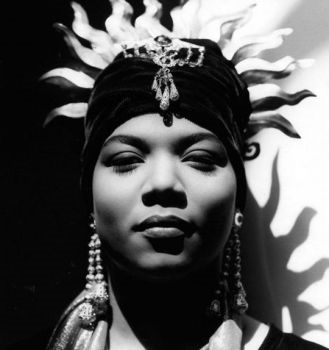 The five elements of hip-hop have always been the same: DJing, MCing, b-boying, graffiti, knowledge. How people express those ideals varies from person to person. On the other hand, you have people who don’t observe those elements or values whatsoever. They certainly don’t represent hip-hop. KRS One, Queen Latifah, etc. They scoff at the idea that hip-hop is inherently misogynistic, violent, etc. Hip-hop was derived from trauma and the surroundings of black and brown youth in the South Bronx who were victims of a ubiquitous government intent on destroying them from the ground up. You make art based on what you know. So what you really need to be asking is if society is inherently misogynistic.
The five elements of hip-hop have always been the same: DJing, MCing, b-boying, graffiti, knowledge. How people express those ideals varies from person to person. On the other hand, you have people who don’t observe those elements or values whatsoever. They certainly don’t represent hip-hop. KRS One, Queen Latifah, etc. They scoff at the idea that hip-hop is inherently misogynistic, violent, etc. Hip-hop was derived from trauma and the surroundings of black and brown youth in the South Bronx who were victims of a ubiquitous government intent on destroying them from the ground up. You make art based on what you know. So what you really need to be asking is if society is inherently misogynistic.
It’s not at all surprising that rap has surpassed rock. The “PC era”? That’s been a thing since the 1980s in one form or another. Lest we forget the history of modern rock music: violent, loud, oftentimes degrading of women both lyrically and visually. Jazz, too, was at one point the best selling form of music (considering all forms of black expression have always dictated what’s on-trend). But also consider why rock and rap are the top forms of expression and not, say, bubblegum pop. Because times are disturbing, dark, heavy. People will turn to music that either allows them to escape that or that speaks for them when no one or nothing else can or is willing to.
Rap, like a lot of rock, stems from a need to shake the tables of an established order. If that rings contrary to anyone it’s because instead of questioning the powers that be (or effectively challenging them), they choose a scapegoat to put all their grievances upon. It’s incredibly easy to do that to black forms of expression, then blame them for the shortcomings of society. It’s also easy to decide that the genre is defined by the ugliness instead of digging into its history and really considering what it stands for.
Qian: “Scapegoat” is an apt term. Rap music is hardly the only genre where misogyny is pervasive. A closer look at country, punk, pop music and the Rolling Stones’ discography — whose history with sexist lyrics deserves a whole category to themselves — would be enough for one to draw the conclusion that the reason for our muted acceptance for misogyny in music is that sexism is everywhere. And yet you don’t see any other genre come under fire for it as much as hip-hop over the years. Even with a song as blatant as “Blurred Lines”, you don’t see Bill O’Reilly saying “pop music is hurting our children”, you don’t have critics unfairly lumping the genre together and deeming it “misogynistic” as a whole.
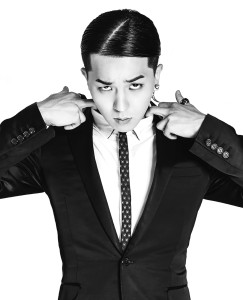 But I digress. We’ve established over the course of the discussion that even though problematic lyrics can be considered “normal” in rap music, it doesn’t make them any less misogynistic and offensive. In another universe, Song Mino’s controversial lyrics about women and gynecologists might have gone unnoticed and even praised for the imagery it conjures, but they’re still sexist and problematic, unwittingly contributing to the idea that going to the gynecologist is something a women should feel repulsed and embarrassed about. Black Nut’s choice to double down on his attacks on KittiB has led to real consequences, consequences that were exacerbated when it was concluded he showed no remorse in the hearings.
But I digress. We’ve established over the course of the discussion that even though problematic lyrics can be considered “normal” in rap music, it doesn’t make them any less misogynistic and offensive. In another universe, Song Mino’s controversial lyrics about women and gynecologists might have gone unnoticed and even praised for the imagery it conjures, but they’re still sexist and problematic, unwittingly contributing to the idea that going to the gynecologist is something a women should feel repulsed and embarrassed about. Black Nut’s choice to double down on his attacks on KittiB has led to real consequences, consequences that were exacerbated when it was concluded he showed no remorse in the hearings.
Going forward, how do you think the Korean hip-hop scene will be affected by the precedent this lawsuit has set?
Cy: To be honest? I don’t actually think it will be. I think at this point, and as far as KittiB’s situation is concerned, this is more a matter of putting guys on notice that women aren’t going to just take a their shit. If you want to try to put a woman “in her place”, be prepared for her to get back at you the best way she can. For some that will be a diss track (which, if people were really honest with themselves, nobody will really take it seriously by virtue of it coming from a woman; that’s the culture we’re dealing with). For others, that means getting the law involved and getting justice. The only thing it’s going to do is force male rappers to reassess how they approach women and how they portray women in their lyrics and videos. Quite frankly, it’s about damn time. If men have to now be held accountable for the way they treat and talk about women, I can’t say I’m upset about it.
Qian: With the ousting of San E from Brand New Music for his sexist remarks, it seems like we’re gradually getting there, Cy. I am, however, interested to see if Black Nut will return to music cowed, tail between his legs, or if he would double down on his old ways, guns-a-blazing, with the added precaution of not naming names.
Call me a cynic, but it’s probably the latter. But at least there’s always something morbidly entertaining about a train wreck.
(Youtube, Korea Herald, Naver [1][2], Images via Just Music Entertainment, Brand New Music, DjBooth, Aftermath Entertainment)
